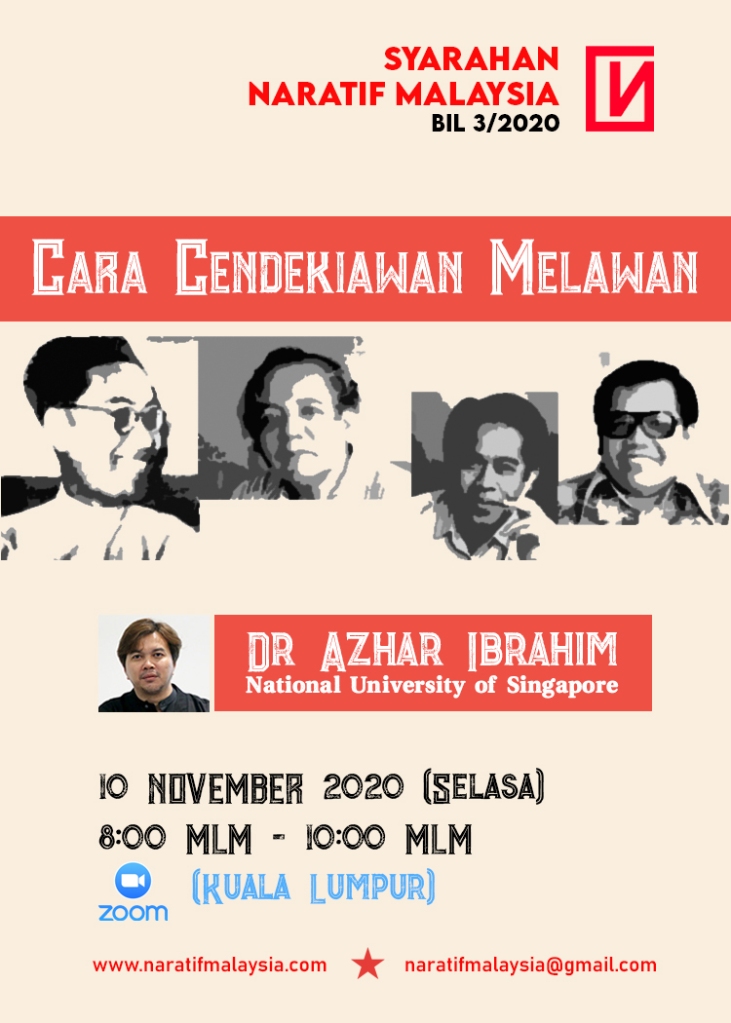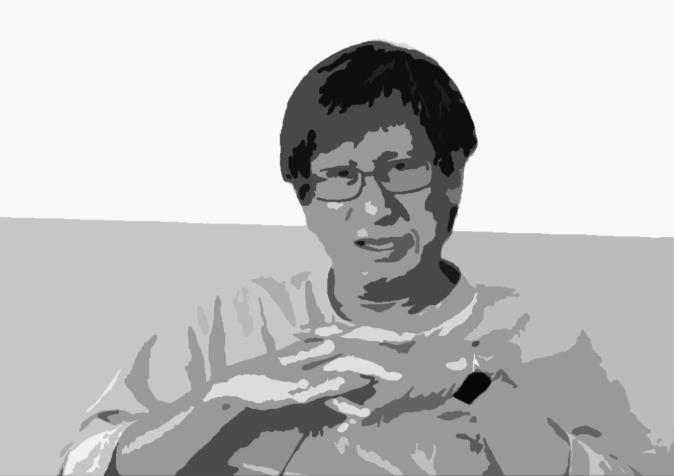NM: Good morning everyone. We’re back again with podcast series and video session for Naratif Malaysia. This podcast series is a program that Naratif Malaysia organise including interview sessions with many scholars and writers who are active in the field of social sciences and its practices in Malaysia. With us here today is Dr Cecilia Ng who is a very active and who has been involved very long in the field and research of social sciences particularly research on women, gender, women social movements, nationalist movement in Malaysia. Dr Cecilia has previously held faculty position/institutional position with UPM and also USM which she has spent considerable time with Centre of Research on Women and Gender also known as Kanita. She has also been actively involved in public policy, public advocacy, policy making with state level government Penang and also Selangor state government doing research on policy and advocacy relating to matters on women and gender. So we are glad and grateful to have Dr Cecilia Ng with us. Thank you very much for being with us.
Maybe just to move on a very broad and general start. Looking at what’s happening and I supposed you’ve been following news on the global arena also but maybe particularly in Malaysia, how have you seen development of identity politics and identity movements occurring? How do you see this development? Do you see it as critical issues and themes that society as whole are confronting right now?
CN: Definitely identity politics, particularly in relation to ethnicity and religion, we all know are critical markers in terms of the development in the country. But sometimes I don’t know whether we should say development or maldevelopment because it is… Being aware or proud of one’s identity, religion, culture is not necessarily a bad thing but when it is being politicised… So it is the politicisation of ethnicity and religion which can be dangerous and in fact is dangerous because it is used as an instrument to divide and rule Malaysian society. And it is happening and used by different power grouping. So this is I think has been happening in this country. And it will continue to be so, unfortunately. Identity politics is not new. I mean, we all have multiple and intersecting identities. So it depends on how one internalises and uses them for good things or bad things. For example, the #blacklivesmatter. It the sense, it is a liberating experience I think for the blacks at that time, and it is still ongoing. Because it talks about the injustices of black people particularly the marginalised. So you can see all kinds of people–white, middle class, –coming to support that. And so for example John Lewis, the black congressman who just passed away… It’s good trouble. So that can be positive. And the negative thing is what’s happening in Malaysia as we all know.
We look at another type of identity which is gender politics/identity. It is important because it involves half of the population of Malaysia.
NM: Which many people don’t realise or want to take notice…
CN: Being binary here: men and women. But unfortunately hasn’t been a really a key movement marker/mover in Malaysian context. And this we wrote about–Dr Maznah, Dr Tan Beng HuIand, and I in a book on feminism. We all wrote different chapters. We talk about the women’s groups in Malaysia and how that is mainly urban based, middle class, English educated. It hasn’t really mobilised the grassroots and it also has had its kind of difficulties in dealing with the state–in changing public policy. Because this is a deeply masculinised state. The state is deeply masculinised, so it’s hard to negotiate.
NM: Since you mention the book, I think it’s an excellent work. I think anyone even for students, researchers, or even new ongoing research that’s a very good book that you’ve published. It gives a very good overview and also detail of the issue that we confront and we need to pick up. Could we ask you, in relation to your work–you’ve done lots of work and research and writing and publication on this crucial theme like you say this identity or the issues of women and gender–so how do you… In the development of the social sciences, of which we are interested in, over the years how do you position your works and writings within 1) the field of the social sciences; 2) more specifically, perhaps maybe you could share with us a bit also on how do you see your works in position with the field or domain that we call policymaking. So maybe one is in relation to the broader field of social sciences first.
CN: I mean I’ve done various types of research but maybe I will mention two research studies in relation to social sciences and development of the country. The first one was my PhD thesis long time ago which was looking at how gender relations were being organised in rural society. So it was called “The Organisation Of Gender Relations In Rural Communities”. I stayed in two villages. It was kind of participant observation. One of the sites of research was in the rice bowl in Kerian Perak. I wanted to look at how the social and gender division of labour was being organised or reorganised in relation to paddy farming communities. So I also tried to look at Syed Husin Ali seminal book on peasantry ie Social Stratification in Bagan, and to look at how rural men and women being organised, what was their positions. So this was trying to look at the interrelationship… I looked it from colonial historical perspective. I went to colonial era, looked at the peasantry, and looked at modernisation because it was a time of green revolution, and poverty, gender, and class. So I tried to look at this from the different perspectives in social sciences. Of course, ethnicity was not a key marker because it was basically a Malay peasant community, homogenous–though it’s not homogenous.
NM: But then there is a more… We have that category…
CN: Yes, different levels but of course it was not a homogenous Malay community. So that was one research. The other one was looking at the technology and impact on women’s work and labour. In a sense it started when I looked at how mechanisation changed the division of labour in the paddy farming communities. And then from there I looked at the computerisation on office workers particularly on women office workers. How it affected work. I mean, due to automation, computerisation, work was being displaced, new kind of works was coming out.
NM: Your work has been always focusing on critical transitions within certain… so movement as you said technology, automation… You have been focused not only on that different intersections but critical periods in time where we see a transition in different developments whether in the technological field also within the social and cultural field.
CN: Yes, absolutely right. Because 1990s was the period of… Well the government at that time, and Mahathir was trying to globalise….. Industrialisation was in 80s.. Then the shift towards the knowledge economy, what you call the K-economy. So that was when,… Then I looked at mechanisation, automation, computerisation…. And in the 1990s, I was fortunate to be seconded to the United Nations University, Institute for New Technology and Industry in Netherlands. There we looked at the impact of new technologies on women’s work in Asia. So that was like policy action research because at the end of the 2 year study, we brought together policymakers, activists, academics, trade union people to come for a discussion, to look at our findings, debate on them, and also to formulate policies for their own countries in Asia. So from there, it was kind of seamless when my next work was teleworking. Teleworking is basically is a mode of working from distance from the main headquarters. So it could be home base, somewhere in the backwaters, or it could be ecommerce. Example, people used to be a surgeon in America was doing some surgery and he talks into the scripts and immediately that scripts is sent to India. And then in India, the typists just typed up everything. And then next morning when he wakes up, it is there already. So I look at call centres also because at one time Malaysia was a place where you have call centres. So some of the global corporations would have their call centres. When you call somebody, you don’t know where the person is from. It could be anywhere. Sometimes when I call my credit card, I asked where are you. So this was teleworking. And in fact it was funded by UNDP in collaboration with MIMOS Berhad. We came out with policy recommendations. And in fact telework, if you look at the 8th Malaysia plan, it was actually a policy in it, 2001-2005. But it couldn’t take place. It wasn’t implemented at all because employers wanted this eyeball to eyeball contact, face to face. They don’t trust their employees. But now a lot of people are teleworking–moving into that, working from home, digital tech, online learning. I mean it’s so ironic that it takes a pandemic, unfortunately, to implement this kind of policy. For example my niece who works in Sydney, she couldn’t go back to Sydney for four months. And she was working from Sungai Petani–conference calls etc. Because she’s doing a lot of data work, risk management… So she could do that through teleworking. But not if you sell cast… I suppose you can’t lah. So there’s certain jobs that can and cannot be
NM: Also then there’s transition between certain jobs that they are trying now to move into that.
CN: So now we have to see what’s the impact in terms of these new tech on peoples work and life.
NM: In relation to you’re the research, you’ve picked on critical phases in transitions and development of tech. And how would you see then your involvement in policymaking… the nittier gritty of it… because you’ve been involved I’m sure, because policymaking is something that comes with its own personality and issues. How have you seen this pan out over the years at the state or national level.
CN: Definitely. I mean, I’m not… We shouldn’t just be pure academics – in the ivory towers. I think we should be involved in the communities, with the people, collectivism or I would call it praxis in a sense.
NM: You’ve mentioned something like policy action…
CN: But if I can go a little bit earlier when during my… I’m not so much activist now on the ground. But in the 1980s, we formed the joint action group on violence against women, as a result of a very successful two-day exhibition cum workshop on violence against women. So this is the first time in Malaysian history that women and men got together to look at issues of violence against women – domestic violence, sexual harassment, rape, etc. And Jack took rape as a main campaign issue – antirape. In 1987, we had a demonstration because there was a young girl, Ang May Hong… she was brutally raped and murdered. So we demonstrated near her shop, we couldn’t do that in front of her shop because the police were all around. So we went around the country, created awareness, exhibition, etc. And I think in 1989, the government passed reform on laws regarding rape. It’s in the penal code. But not were reformed but at least there was some success in relation to rape. Then next, the second issue on VAW was on sexual harassment. Sexual harassment has been around for some time. But because of the case in Penang, Copthorne, just across from here where many of the office workers particularly the managers were being harassed by the employer. So the Women’s Crisis Centre at that time, now Women’s Centre For Change, took up this case. The women’s groups then thought important to come out with a bill against sexual harassment. So I did the research looking at the effectiveness of the code of practice on sexual harassment. And this was used as the background to crafting the bill on sexual harassment. We presented the bill to the deputy human resource minister in 2001. 20 years later, women’s groups are still waiting for the bill. One might say that thanks to Pakatan Harapan government, which is no more, the bill was supposed to be tabled this year. It was in the process of discussion. But unfortunately, now I think it has been shelved. We don’t know what’s happening and we have no access to it. So in the sense it takes a long time to lobby the state. Sometimes they just don’t care. Sometimes they pass it to another ministry… Then the secretary general changes, the minister changes. So that was in terms of sexual harassment.
Moving closer, past one or two decades, I was looking at gender, democracy, and politics. One important research which was state-driven was looking at women’s decision making in the public and private sphere. Women’s leadership and decision making particularly in relation to how the minimum 30% target could be realised. And this was actually enshrined in the 6th Malaysia plan (1991-1995).
NM: So it was very much even before that it’s already… In the 1990s…
CN: Yes. Because that was for women etc. Teleworking, I think I made a mistake already. But nevermind…
NM: But that was the broad range of the phases?
CN: Yes, of the phases of that time. So with a group of consultants, we went into six sectors and then came out with quite a comprehensive plan of action. But unfortunately, this plan of action I think was just left in the shelf. Some of the key recommendations, which I think is key, is like he legislation of gender quota. Of course there are debates of this legislation. There’s pros and cons. But for me, it is a temporary special measure. If you look at CEDAW, it’s temporary special measure because if you don’t have that legislation, it’s shown all over the world that you will never get enough women in parliament, critical positions… Unless you have some policy, legislations… Unless you have somebody there who can drive… Of course you just don’t get any women. Women of substance.
NM: So finding that balance of having that necessary both present and also that…
CN: It’s the descriptive representation and substantive representation. Descriptive you can send your wife or some key politicians there, some relatives… But substantive is that you know the issues and you will mobilise. Not necessarily always on gender issues but on other issues from a gender perspective. So this was at the federal level. Moving to the subnational level, I was involved with the setting up of the Penang Women’s Development Corporation, PWDC, in Penang, I think in 2011. But I came in after the Pakatan Rakyat took over Penang in 2008. So it took some time. I was in the committee, supporting the state exco for women, and it was… The exco wanted to push for a state machinery to handle gender issues, to ask for more resources, and that was when … There are some of us, I proposed gender responsive budgeting, GRB. So looking at how to mainstream gender into the budget so that gender equality is taken into consideration, it’s also about fiscal democratisation. So we looked… In the beginning it was gender responsive budgeting and then later we added in the participatory component. So gender responsive and participatory budgeting. And the PM was from Santo Antônio da Alegria in Brazil where it was very much people’s power that actually got the local council to have the people involve in budget planning, budget implementation, and budget evaluation. So that was good because the two local councils adopted GRB as pilot project. The state government about RM600k a year was being allocated to PWDC. We have staffs, and we work in the low-cost apartments, PPR. In the beginning it was difficult because you know bureaucrats they’ve been there for 60 years. They just moving papers, they don’t want to go to the ground. So only when these staffs showed that there was positive development within the PPR, the residents were more active, they came out… So as a result, even the state government now I think has taken on the GRB.
NM: So as we want the real impactful… That’s when one the of convergence between research and action and policy comes into where they intersect and makes an impact on peoples live on the ground. In addition to that, how do you see other policies and projects? Are these ongoing? Are there differences at national and state level in terms of their implementation or interest in such policy?
CN: GRB if you look at it per se, has been part of the federal government, I would say, objective I think since 20–… I can’t remember when… A long time ago. Together with UNDP, they came out with a manual, workshops, and it was supposed to be part of the outcome-based budgeting. OBB at that time… OBB was like one of the mantras. So I even went to the human resource ministry Putrajaya, saw the person in charge. He was very positive about gender. But he said you should talk to the ministry of women about it. So again, it is passing the buck. But unfortunately, I think the OBB unit there has been dissolve and the person there I think have gone somewhere else. So off and on there will be talk about gender budgeting by parliamentarians but it actually hasn’t gone anywhere. Imean same with the gender quota let say in terms of decision making. Dr Maznah, Dr Tan Beng Hui. We did the research in the recent GE14 to look at women’s representation and candidacy. And at the end of the day, there’s not much difference in terms of women in parliament. Although you would say PH did a bit better compared to BN for the last 60 years. And now I think it’s come down again because of the recent changes. That’s another story. Then from Penang, I was also involved with the Selangor government mainly through Institut Wanita Berdaya, IWB. So it was set up by YB Zuraidah, Haniza at that time. So we came out, we developed Selangor development policy. And there was a plan of action in the different issues again. So now one of the key issues in term of development was looking at gender mainstreaming in the state sectors. So now there are teams of consultant led by Dr Prema Devaraj who are looking at how to mainstream gender into the Selangor government, looking at different sectors. But then with the pandemic, it’s very difficult also to have face to face trainings. So I think they are doing some online trainings etc. And again, it’s also hard to get the pengarah, head of department, to be involved. They’re busy, they cannot come for meeting. I mean we have a beautiful structure–how it’s implemented, time frame, short middle, long term, etc… But at least Penang and Selangor is much more open. And in Melaka I think YB Jeanie when she was state exco for women she was also keen for Melaka to have some kind of gender policy. But now…
NM: On these issues and themes, could I ask you. How do you see on the back of these things, are the same issues repeating themselves or are they still the main issues? Do you see any new issues or are we still facing with all these things that we have moving on? How do you see this? Both in research and also on policymaking. Are we still facing these issues again and again or do you see new things coming up?
CN: Is it old wine in new wine skin, or is it better wine. I think some of the main/key issues are still there. You still have to look at. It’s called old issues, but maybe from a different perspective or in context of the shift in the trends in the country, issues of poverty, urban rural poverty, East Malaysia, distribution of income and wealth… They’re still there, still important. Inequality is increasing, decreasing… Inter and intra ethnic… Although we don’t have to talk about that… But you know… These are important markers. Trade and investment, agreement, how to assess impact on workers in the country… it’s still important. Of course, gender… Looking at gender, identity issues are still important. For example, gender-based violence is being mainstream now, now the government has taken over and also looking at violence against women… We have men against violence… groups etc. looking at recent pandemic, WAO has said that the number of reports has tripled. Increased… There’s a report… I have it in june. There are now that since May there were 800 reports of domestic violence. And another 800 of queries on help line. It’s tripled. So working from home… If women stay at home, the abuses are there. So it’s not a safe haven. So public policy have to address these so called unintended consequences.
New issues in a sense… of course. Climate change, which is not new but still new relatively. And in fact social sciences have to be more interdisciplinary, when you look at climate change issues. SDG, the sustainable development goals… There are 100 of goals… Many more of the objectives and goals. Impact of Covid19 definitely… Public health issues, mental health issues… Migrants issues… Sexual reproductive rights… I mean these are issues that are important. So like a report that was talking about high companies digitization of the infrastructure. It’s not easy to have the infrastructure towards a real digital economy, or what we call the industrial 4.0… We don’t know what we’re talking about. So these are issues that always still important and what we call emerging issues. Gerontology issues, aging population… How we provide for the elderly in terms of public policy.
NM: In moving forward, then I suppose one of the things that become very prominent then and everyone is talking about it is the younger generation. So you’ve done so much, engage so much with so many people in different time, on different issues,. How do you see young people positioning themselves, or getting involved in these critical issues. What do you think is in store for them? I suppose this question come out again. No really fixed issue but the issues that intersect with one another. Are they ready for this. What are the things they should engage and address? What are the challenges. How do you see this going forward for this generation? In the social sciences, in policymaking. But also maybe specifically the research you’ve been doing all these while also. Women, gender… How do you see this going forward for them? How would you imagine it to be?
CN: There is saying the young doesn’t take over, the old want to retire already. We need these intergenerational conversations, a lot of intergenerational conversations, because… Some of the women’s groups are saying that young people don’t stick to a job anymore. They float here and there, they come for one or two years, then they go somewhere else. But it is how they want to see their lives as a young people I suppose. Whereas for us, we are insecure. We don’t earn income… And we work hard because our parents didn’t have the means to support us. Whereas maybe younger people now, maybe middle, upper middle class, parents spoil them like crazy, in that sense, I think one important thing is looking at social media and how the young are affecting social media and being affected by social media. So how they portray themselves in social media. I mean you have people putting themselves on Facebook… Not that I don’t have Facebook… I’m here I’m there this how I dress. So I don’t know. Is it performativity, is it the need to have attention, recognition, identity issue… There’s something that you need to have conversation on how to address this so that it can be a positive identity for that. In terms of social sciences… Well I think you have the PSSM, young scholars definitely should join PSSM… In terms of research, looking at research think tank, Penang Institute, Khazanah Research Institute, PE Research, even IWB… It calls itself a think tank for policy issue. They offer research fund. PWDC they don’t do much research but it’s more of implementing the policy on the ground. ARI, Asian Research Institute in Singapore. I think they’ve done some fantastic job. There’re good people there and they’ve done some good research, so I think young scholars have to look and mind these different research institutes. Not only nationally but also international group. I think you all are quite good at that. The other one is the collaboration between senior and younger researchers for example. How senior researchers, scholars, can guide the younger ones. If I talk about Kanita for example, we have research Kanita director, Prof Noraida Endut. I’ve asked them to send me some of their research interests. So youngest scholar have just come back from their phds. Theyre carrying on with their research, let say Dr Zairin, on gender and politics, women decision making. She’s venturing deeper into the area of gender and politics. Dr Teng on migrant workers. She’s going more into policy issues, sexual reproductive health… Sexual harassment. Looking at due diligence. Public policy. And Prof Noraida and the younger researchers are also collaborating on looking at–a longitudinal studies on covid19. Its impact on work, decent work, looking at family friendly policies. So I think this kind of collaboration… I’m sure probably in IKMAS also there would be intergenerational projects, transdisciplinary, interdisciplinary, etc. For young scholars who want to get involve at the ground level, I think the women’s groups are more than happy to have them to do research on the particularly areas. Also advocacy… I think like SIS, AWAM, WAO, WCC, EMPOWER, TENAGANITA, etc… I think there are opportunities…. To seek out the opportunities… You know… Ihad to go knocked on doors, call this person and that person. In terms of public policy, it can be daunting, it can be sometimes quite disappointing but you have to go to the ministries because they do research they have tons of research. So you have to see a particular member of parliament, state representatives… And see how we can collaborate with the state exco or other agencies or ministries in terms of research. So it is to negotiate, engage, and knock on doors even though it might be tiring to do so. You just have to forge ahead… Just have a thick skin… If you get burned out, which some of us are, take some time off to rejuvenate your body, soul, and mind. It’s very important.
![[Pendaftaran] Syarahan Naratif Malaysia oleh Jomo KS](https://naratifmalaysia.wordpress.com/wp-content/uploads/2020/11/jomo.jpg?w=625)
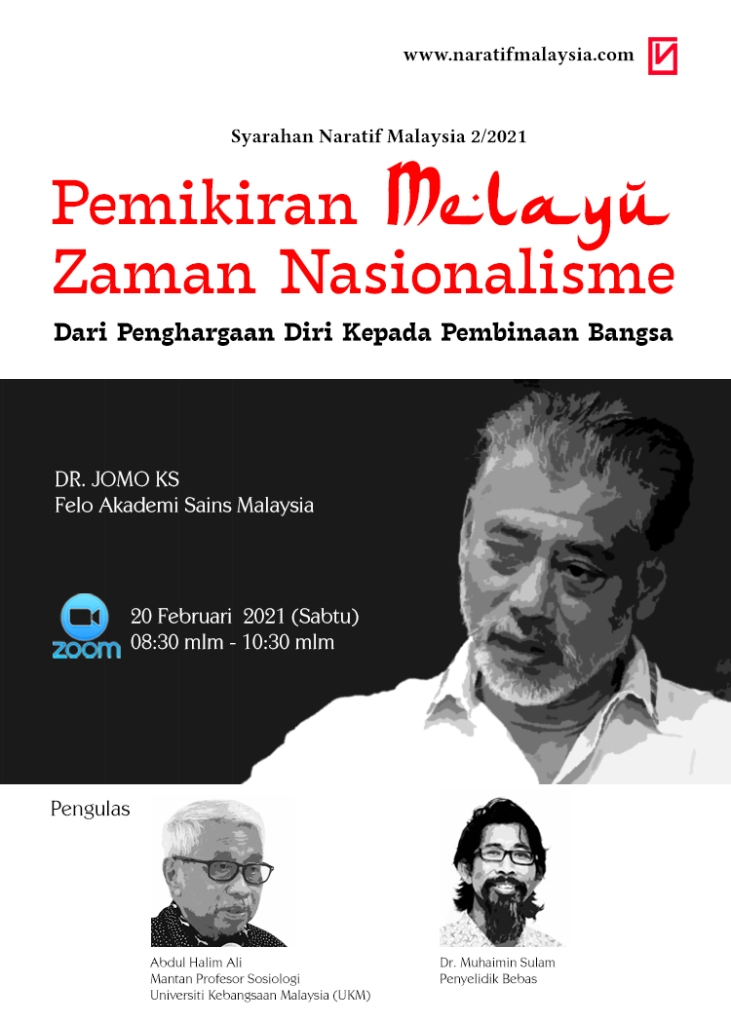
![[Pendaftaran] Syarahan Naratif Malaysia oleh Mohamad Abu Bakar](https://naratifmalaysia.wordpress.com/wp-content/uploads/2021/01/mohamadabubakar2.jpg?w=582)
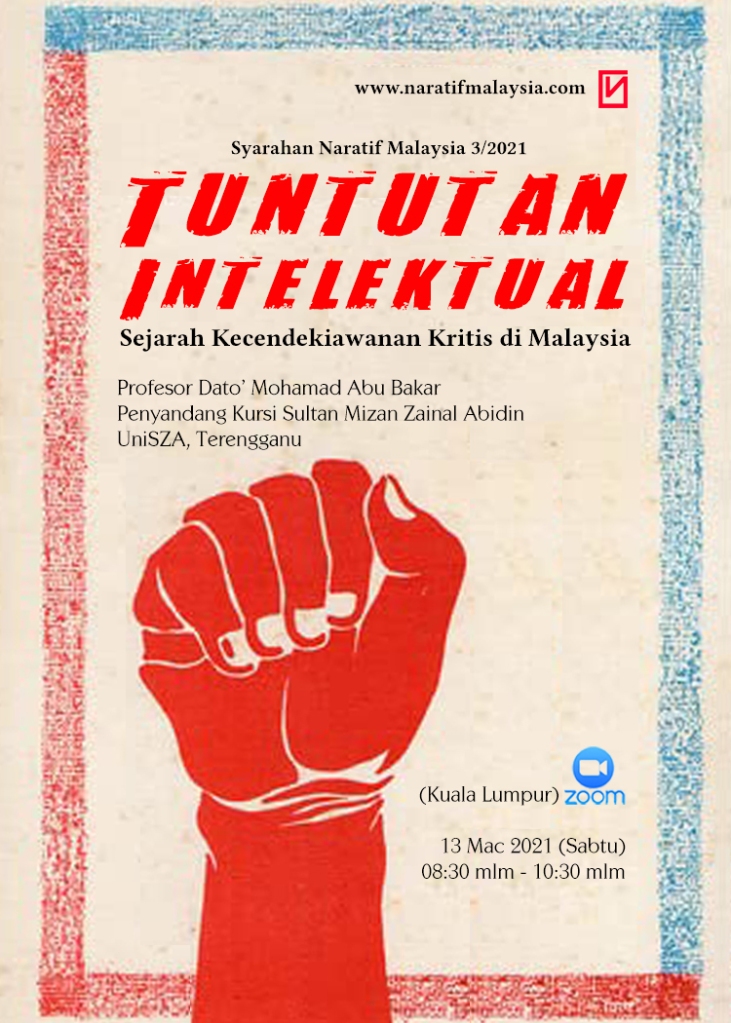

![[Pendaftaran] Wacana Meja Bulat “Langkah Integrasi Kaum di Malaysia”](https://naratifmalaysia.wordpress.com/wp-content/uploads/2021/01/roundtable_graphic.jpg?w=1024)

![[Pendaftaran] Syarahan Naratif Malaysia oleh Syed Farid Alatas](https://naratifmalaysia.wordpress.com/wp-content/uploads/2021/01/dr-syed-farid-alatas.jpg?w=800)
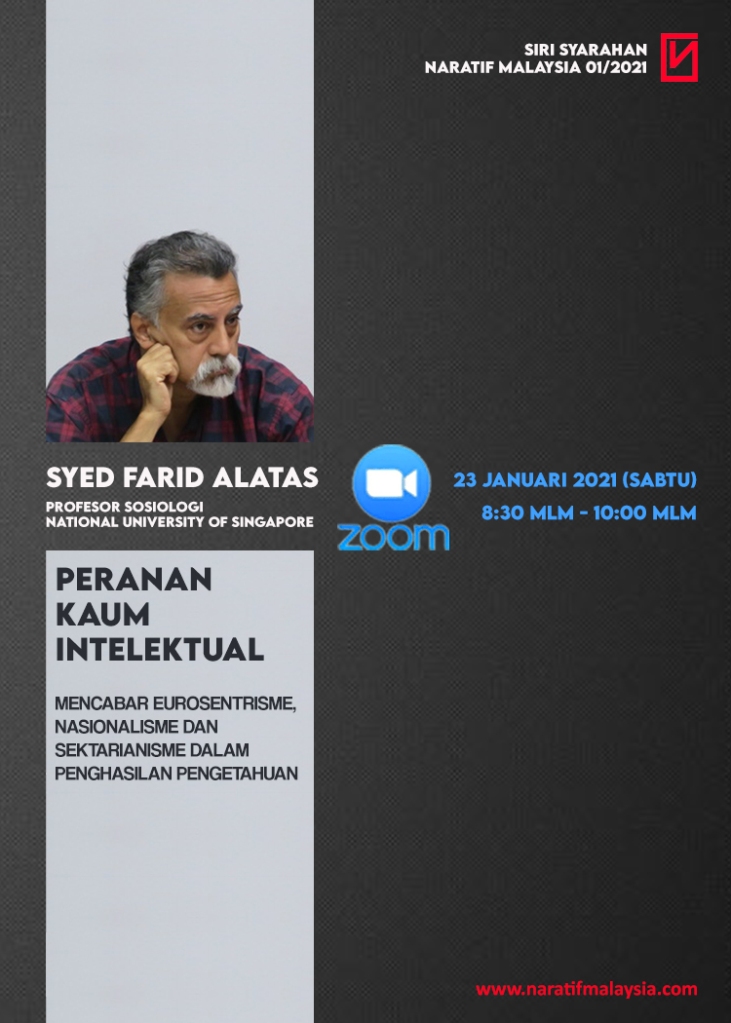
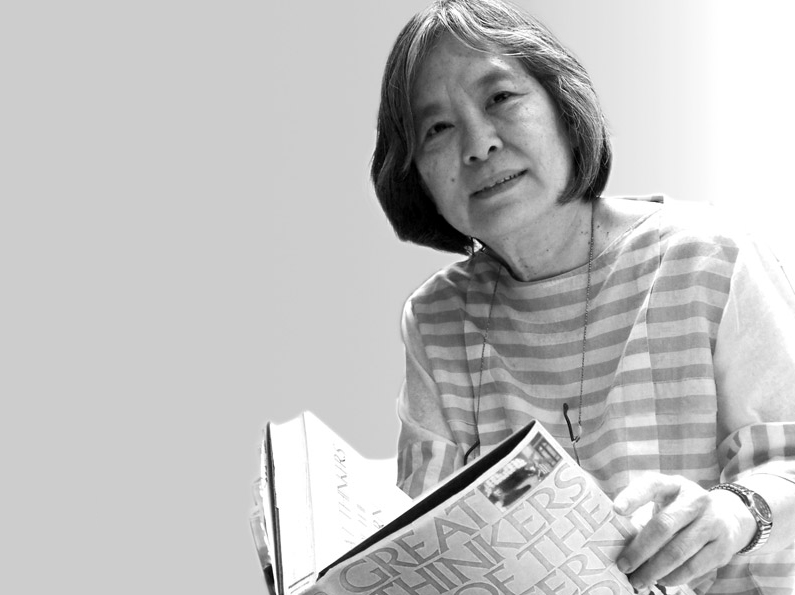
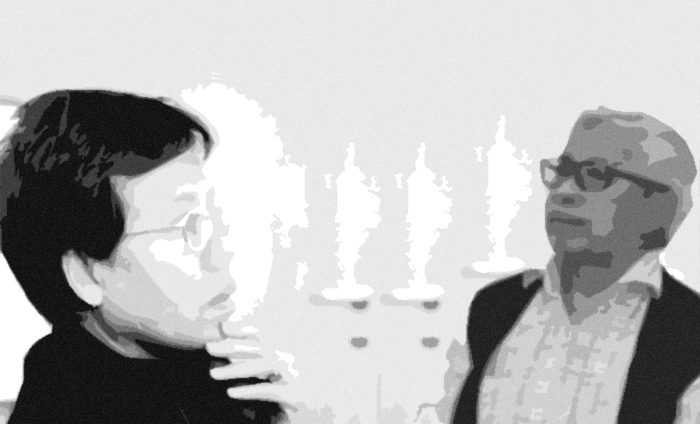


![[Pendaftaran] Syarahan Naratif Malaysia oleh Azhar Ibrahim](https://naratifmalaysia.wordpress.com/wp-content/uploads/2020/10/azharibrahimfront.jpg?w=786)
